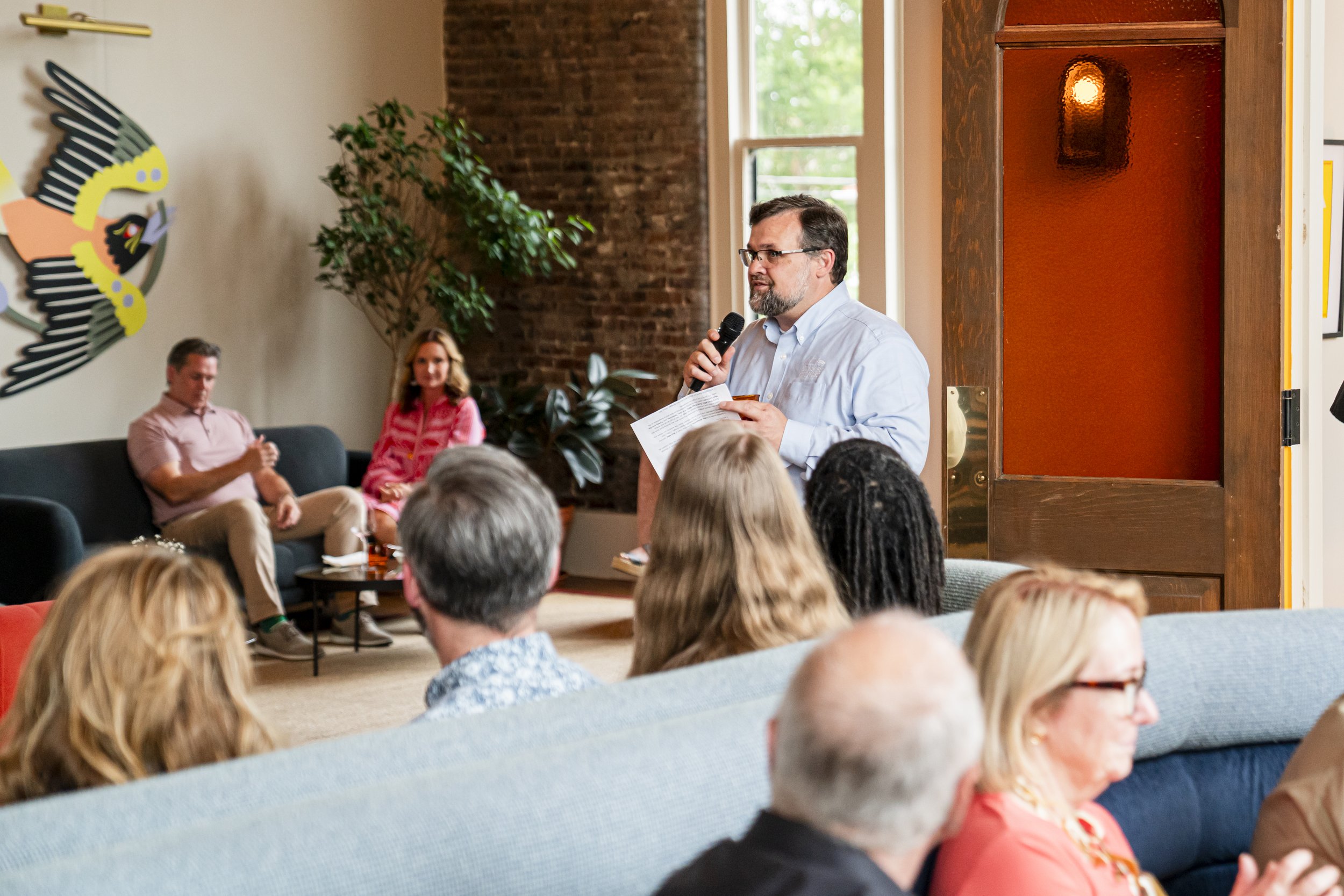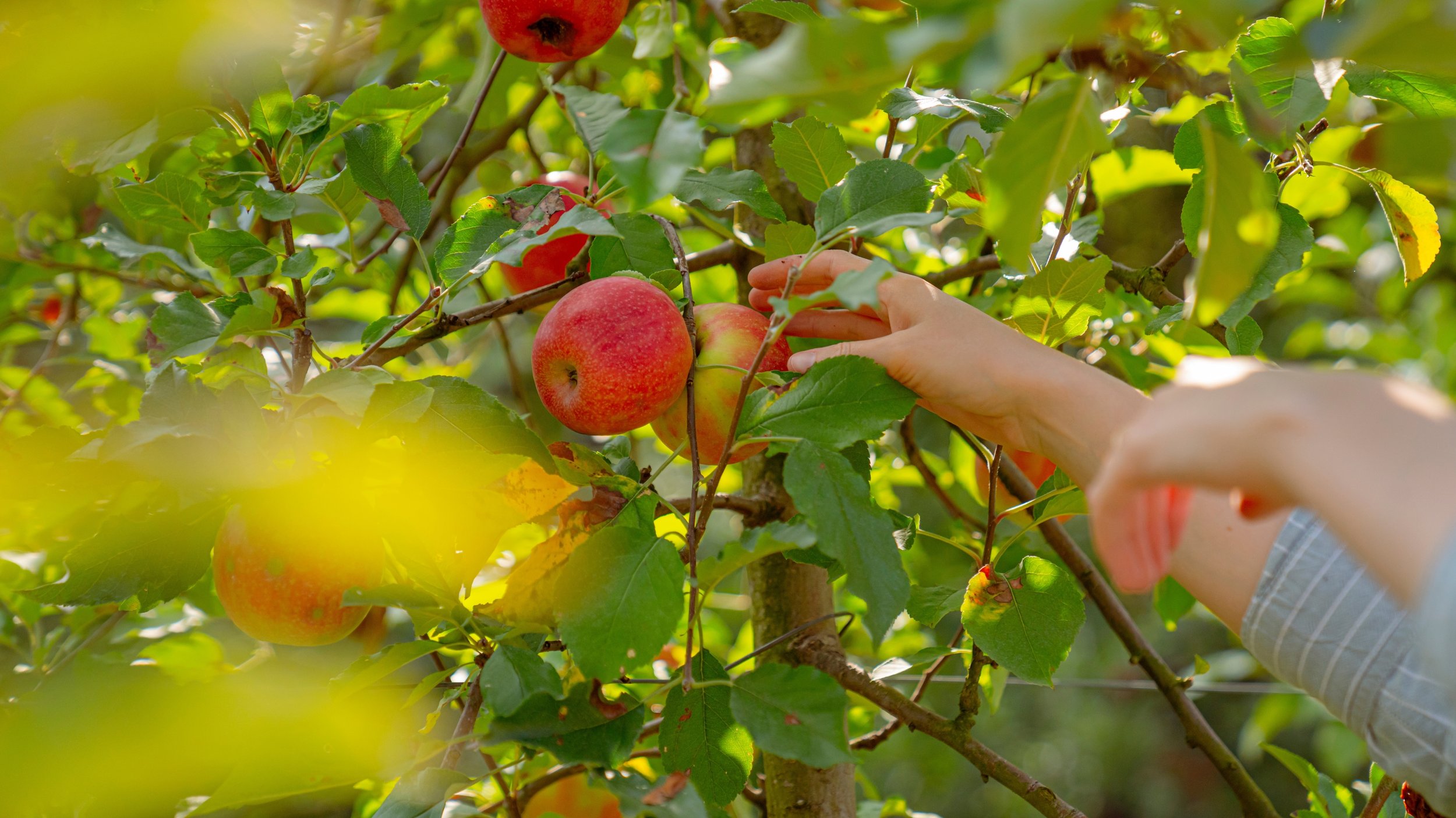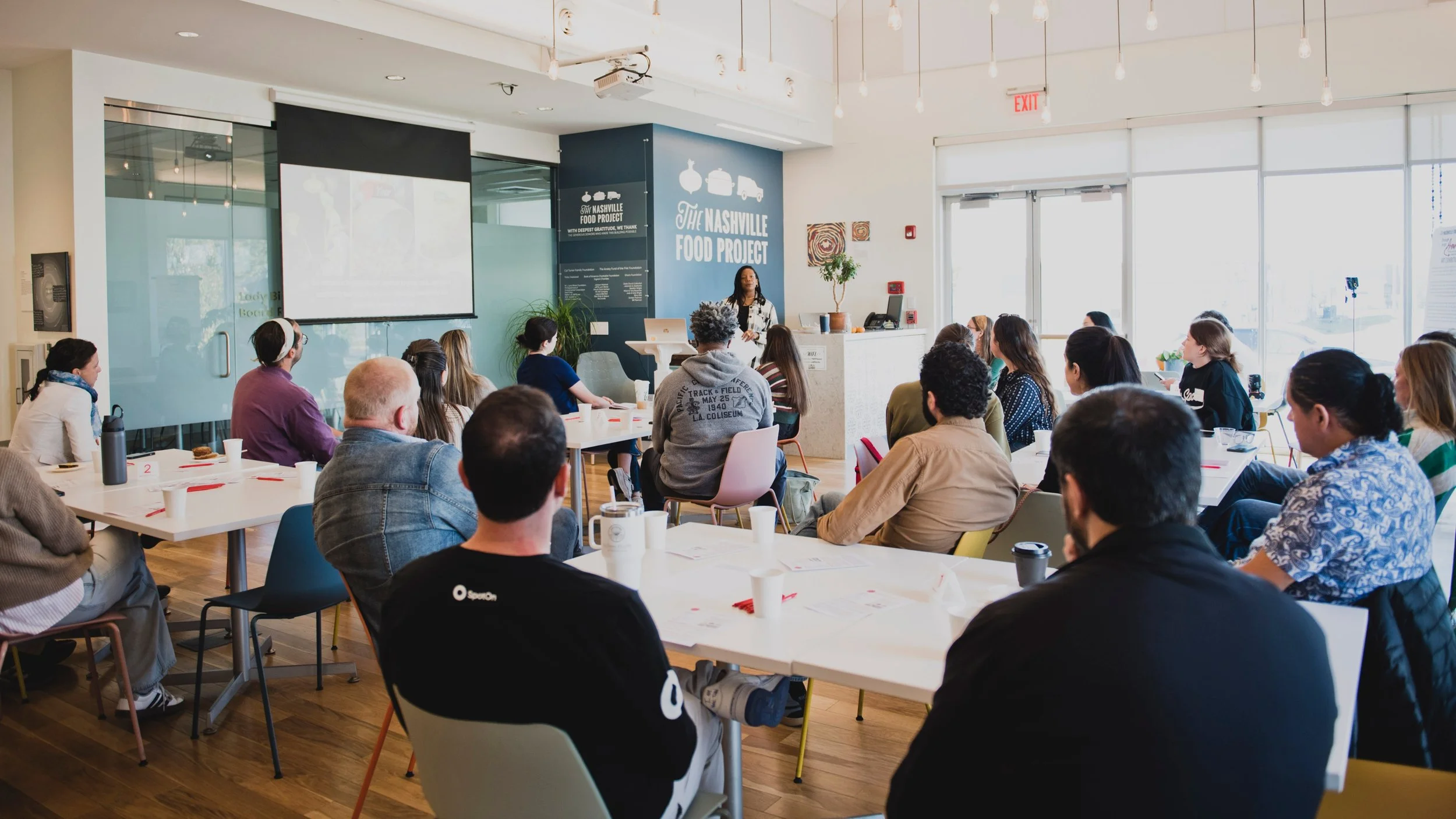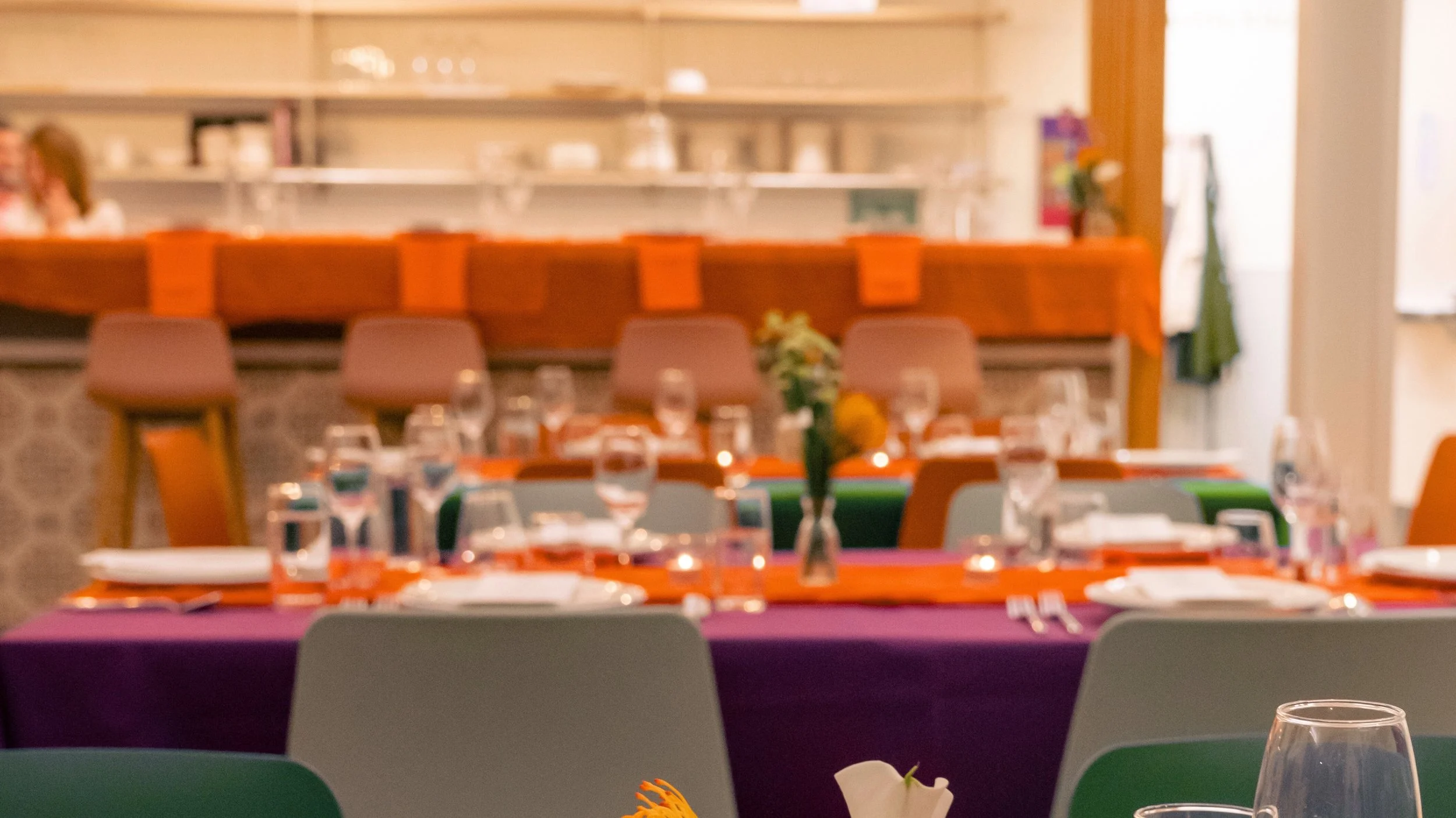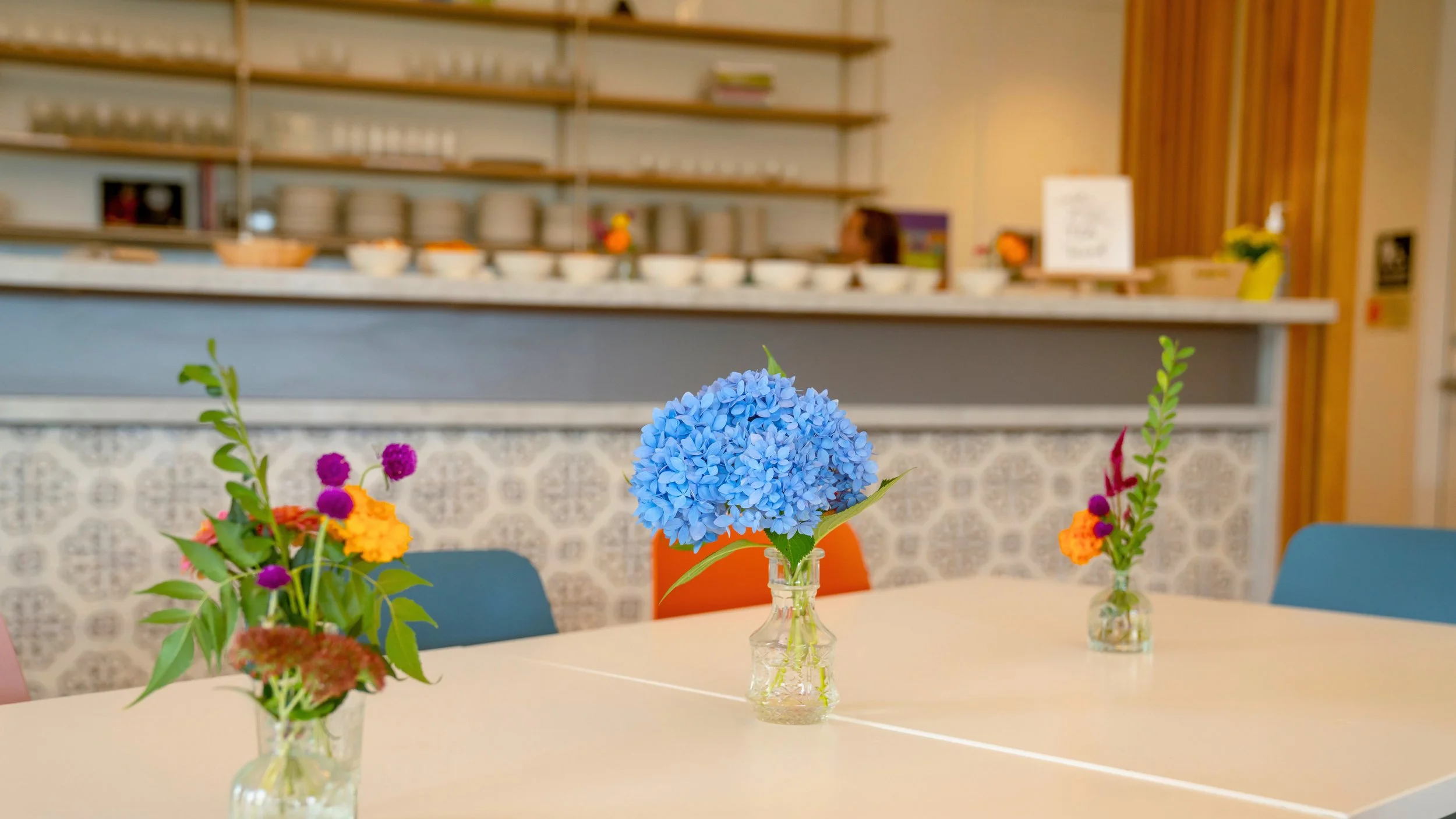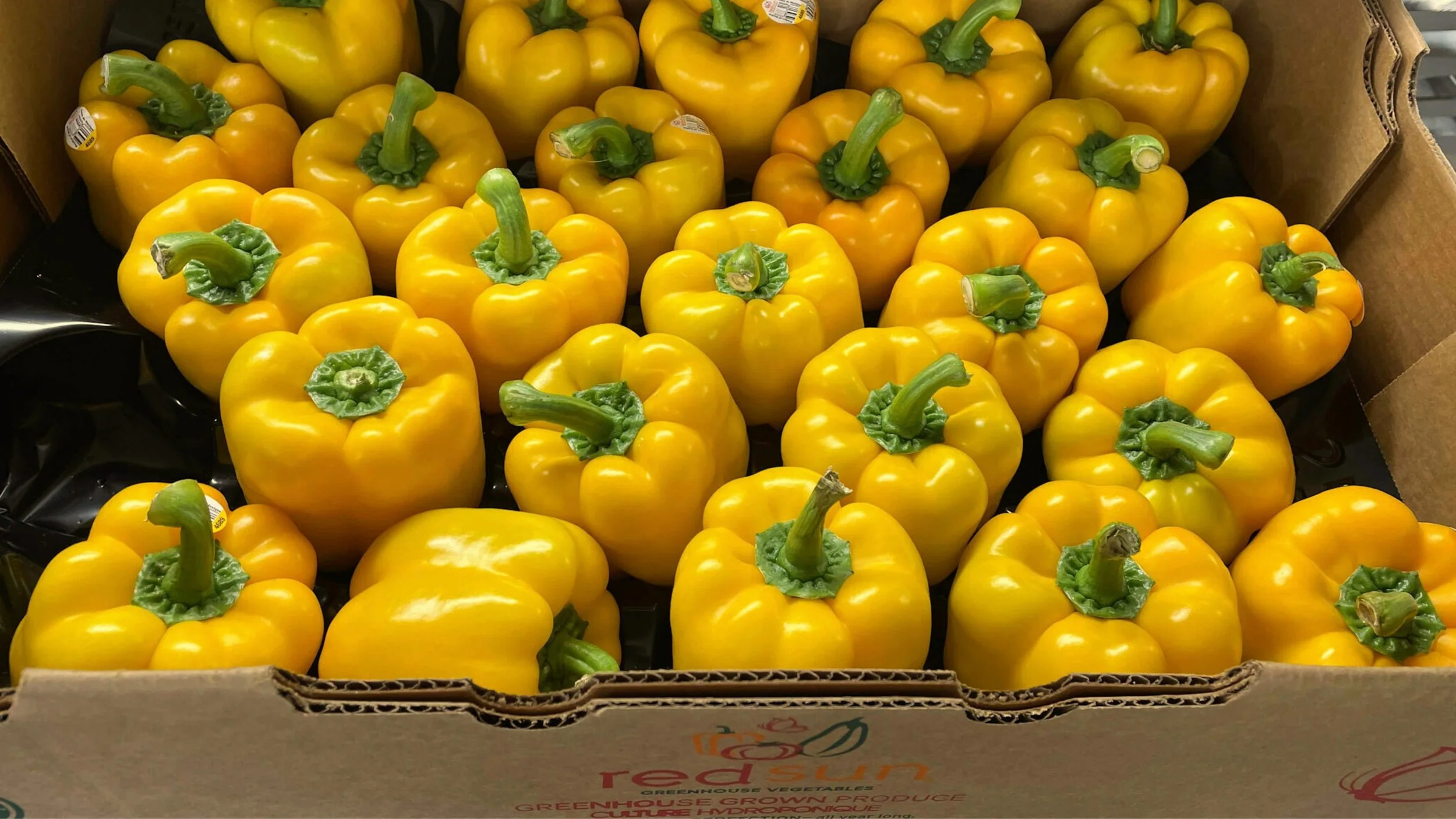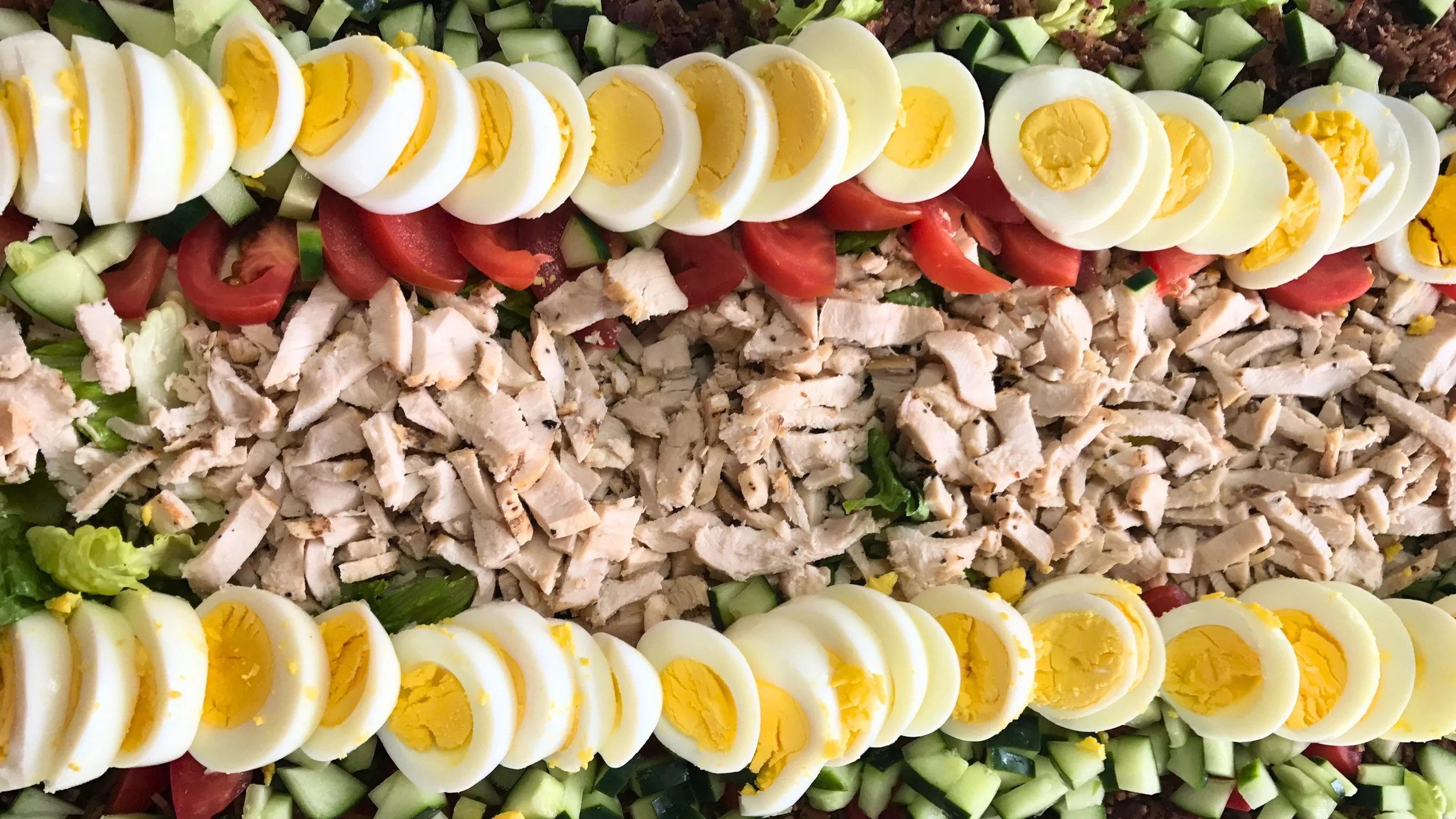The Latest Stories
Community orchards are long-term investments. They ask us to think beyond a single growing season and consider what sustained nourishment can look like over time. Once established, this orchard will provide fresh fruit for community partners and neighbors, while also serving as a shared space for learning, connection, and stewardship.

Nourish 2025 was a powerful celebration of food, community, and connection. From a beautifully collaborative meal prepared by top chefs to stories that highlighted the heart of our mission, the evening brought people together around a shared table and a shared purpose—to nourish Nashville.
At the Andrew Jackson Clubhouse of the Boys & Girls Clubs of Middle Tennessee, kids are spending the summer learning, growing—and thanks to The Nashville Food Project’s made-from-scratch meals—staying nourished, too.
Through the Sweet Peas Summer Eats for Kids program, sponsored by Jackson®, hundreds of healthy meals are delivered each week to support youth during a time when access to regular food can drop off.
This partnership is part of The Nashville Food Project’s Community Meals program, which brings nutritious food directly to organizations already creating safe, supportive spaces for young people.
Now in its sixth year, the collaboration with Jackson is helping serve over 100,000 meals this summer—fueling not just plates, but potential across the city.
Two volunteers from The Nashville Food Project received honors at the 2025 Mary Catherine Strobel Volunteer Awards. Marcie Smeck Bryant won the Social Justice Impact Award, and Cheri Ferrari was a top finalist for the Charles Strobel Legacy Award. Presented by Hands On Nashville/United Way, the awards are Middle Tennessee's largest annual celebration of volunteerism.
The Community Agriculture Network is a collaboration of growing spaces—community gardens, church plots, urban farms, and orchards—each managed by trusted leaders in their respective communities. These sites are independently managed but supported by TNFP through shared tools, technical assistance, access to seed and compost, and a network of volunteers and educators.
If we think only in terms of hunger, our response will be emergency food. This is important, but it’s reactive. If we frame the problem as food insecurity, we begin to think bigger. We move from charity to justice. In other words, you can end someone's hunger for a day. But ending food insecurity means making sure they don't face that hunger tomorrow, next week, or next year.
The Nashville Food Project has a new partnership with Brooklyn Heights Community Garden and Cosecha Community Development, thanks to a USDA Community Food Projects grant. The three organizations are working together to increase local access to fresh fruit and veggies. That includes some free produce boxes, new produce markets, and new gardening and wellness classes.
“Our little army of volunteers save tons of fading produce from the landfill and turn them into nourishing meals for the community. Every head of lettuce represents not just waste averted, but a body nourished.” — Abhinav Krishnan, Volunteer
Have you ever imagined what it would be like to live in a version of Nashville where there was food growing everywhere? In every neighborhood, at city parks, churches and public offices, vacant lots, schools, your neighbor’s yard, and everywhere in between? As 2024 comes to a close and we look ahead to 2025, we’re excited to announce that we are embarking on a journey to transform our current network of three gardens and farms into a citywide hub-and-spoke model of community agriculture.
This Thanksgiving, Americans are projected to waste upwards of 316 million pounds of food. But it doesn’t have to be this way. If every household in America made small, intentional changes, we could make it a day of celebration for people and planet. Here are a few tips to reduce food waste that Chief Culinary Officer Bianca Morton has learned and adapted during her years at the Food Project.
Earlier this year, volunteer Jenn Crimm wrote, photographed, edited, and designed her own cookbook — a labor of love that aimed to preserve the meals that got her through a tough season. Food has always been central to Jenn’s life, from growing up in a close-knit Italian family to forging friendships around the table in Nashville. Her grandmother's cheesecake, a cherished but undocumented recipe, inspired her to create a cookbook to ensure her own recipes could be passed on to her loved ones.
There’s something to be said for things that grow steadily over time — like a well-tended garden. And just like the garden requires patience, care, and dedication to show up again and again, so do partnerships that create lasting change. For the last three years, Love, Tito’s, the philanthropic heart of Tito’s Handmade Vodka, has supported The Nashville Food Project as part of their Block to Block program.
We’re in the mood for some holiday cheer (and are always looking to get excited about the next big meal), so we asked some of our meals team about their favorite Thanksgiving dish. Hopefully, the answers get you excited about your own gathering — which we would love to be a part of in some small way!

